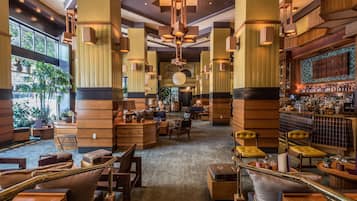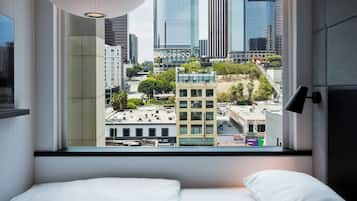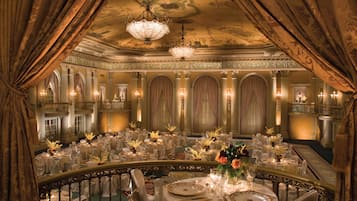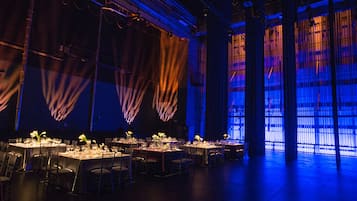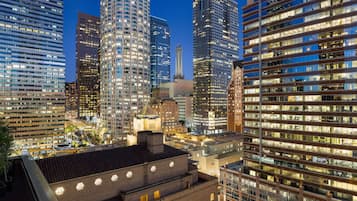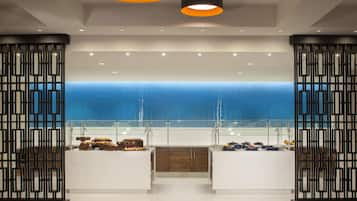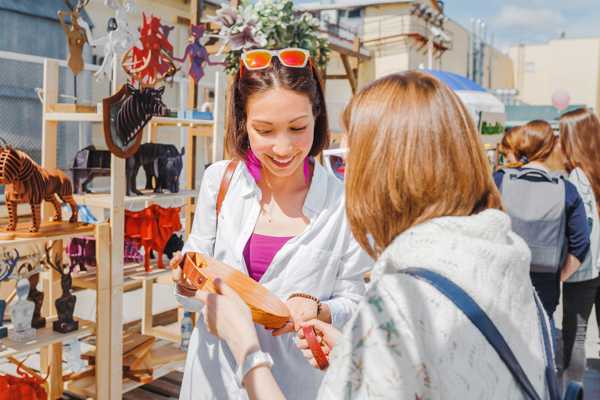Union Station is the main railroad station and transportation hub in Los Angeles. It's in the north-eastern corner of downtown LA. The station opened in 1939, replacing La Grande and Central Stations as the city's main railroad hub. It's known as the last of the great railroad stations to be constructed in the USA, with the iconic structure featuring a Mission Moderne architectural style. Today, the station is the largest and busiest railroad passenger terminal in the western half of the country, serving over 100,000 passengers a day.
Union Station has 14 outdoor tracks shared by Amtrak and Metrolink, as well as 3 metro subway lines. Long-distance motorcoach services and metro and municipal bus networks operate from Patsaouras Plaza on the eastern side of the station.
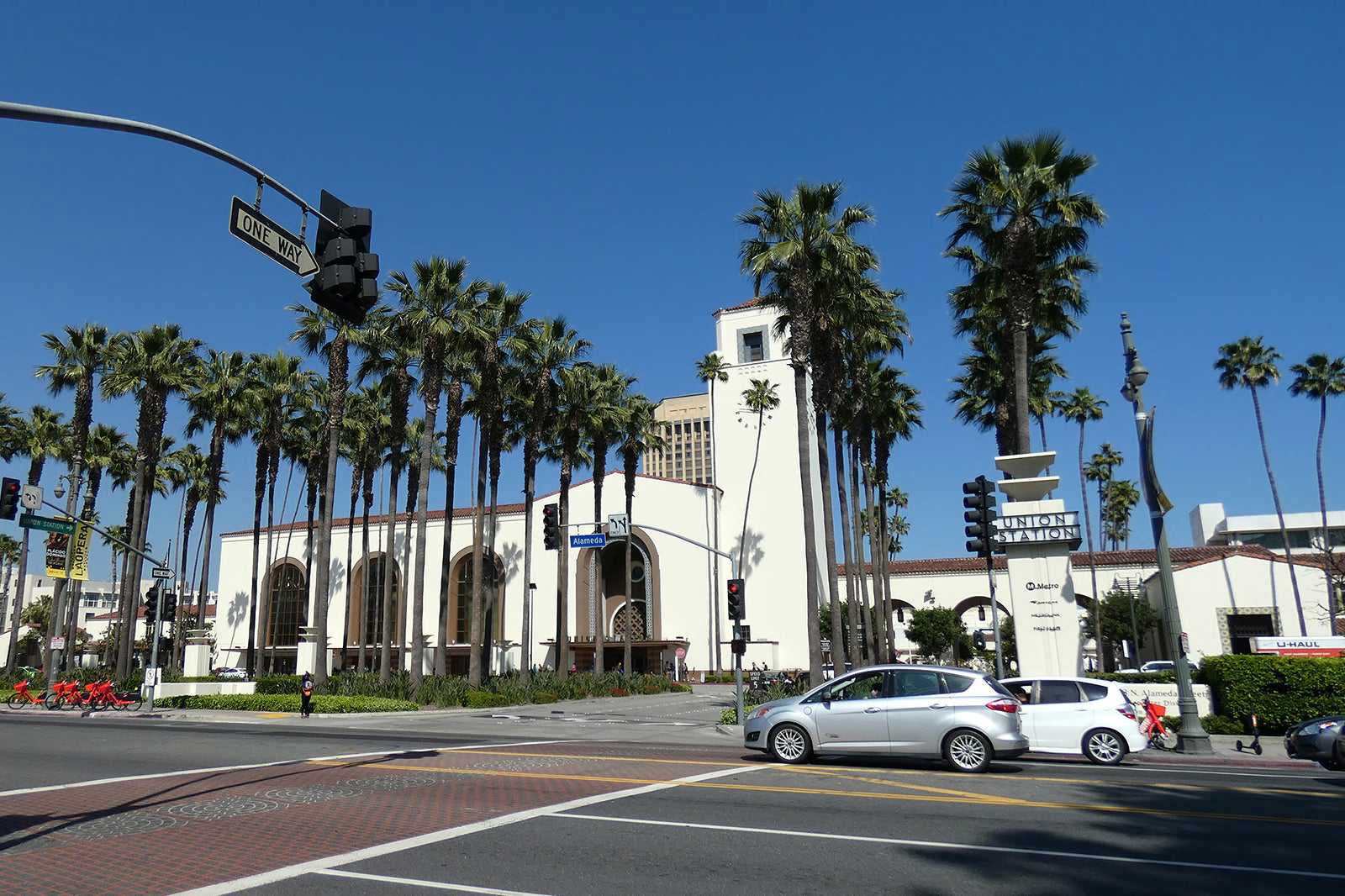
What are the highlights of Union Station?
Union Station has become an iconic complex in Los Angeles. The main building was listed on the National Register of Historic Places in 1980. In the 1990s, a variety of public art murals and sculptures were commissioned for the lobbies and platforms of the station. The range of artwork on display today includes works by Bill Bell, Roy Nicholson, East Los Streetscapers, and May Sun.
Union Station is the main transportation hub of the city servicing destinations across the city, state and country. The station is the western terminus for 4 of Amtrak’s main long-distance services as well as for 6 of Metrolink's 7 lines in southern California. On the eastern side of Union Station, the Patsaouras Transit Plaza is home to motorcoach services operated by Amtrak California, Flixbus and Megabus.
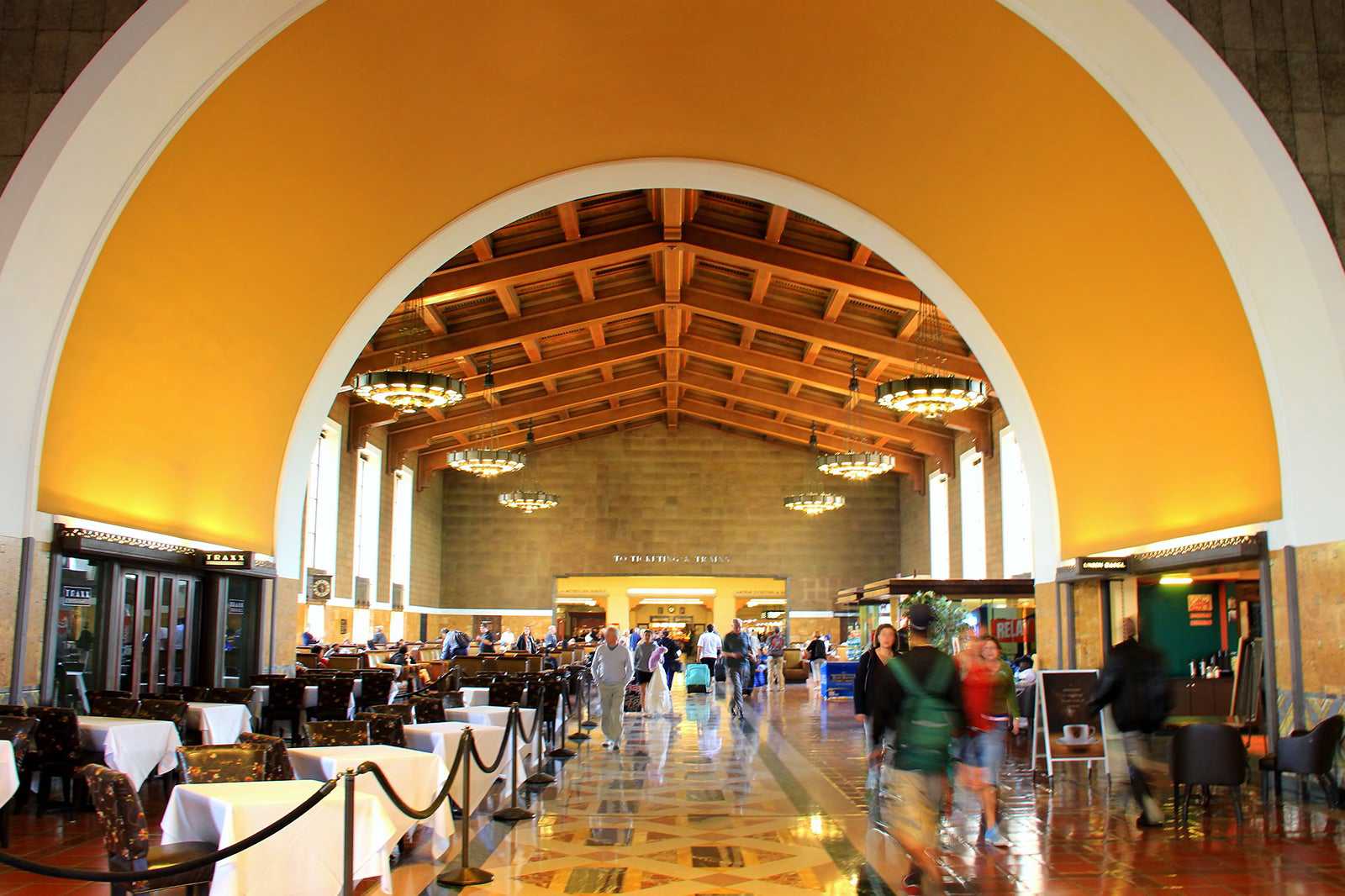
photo by Shehzadkhalid (CC BY-SA 3.0) modified
A brief history of Union Station
After a contentious public vote as to the construction and location of Union Station, it was finalized and built in 1939 in Chinatown. The station was intended to consolidate the 2 main railroad stations that existed at the time, Central Station and La Grande Station.
Father and son architects, John and Donald Parkinson, designed Union Station by blending colonial, Mission Revival and Art Deco architectural styles. This original design has led to it being recognized nationally as a historic place of importance in the USA.
Despite planes and automobiles becoming the favored mode of transportation by the 1950s, the station continued to be the main railroad and transportation hub of the city. In 2011, Metro purchased the station and focused on increasing amenities and services, including dining and retail shops. The station is projected to continue expanding, with extended tracks to allow more trains to pass through. It will also become the main hub for the California High-Speed Rail in the future.
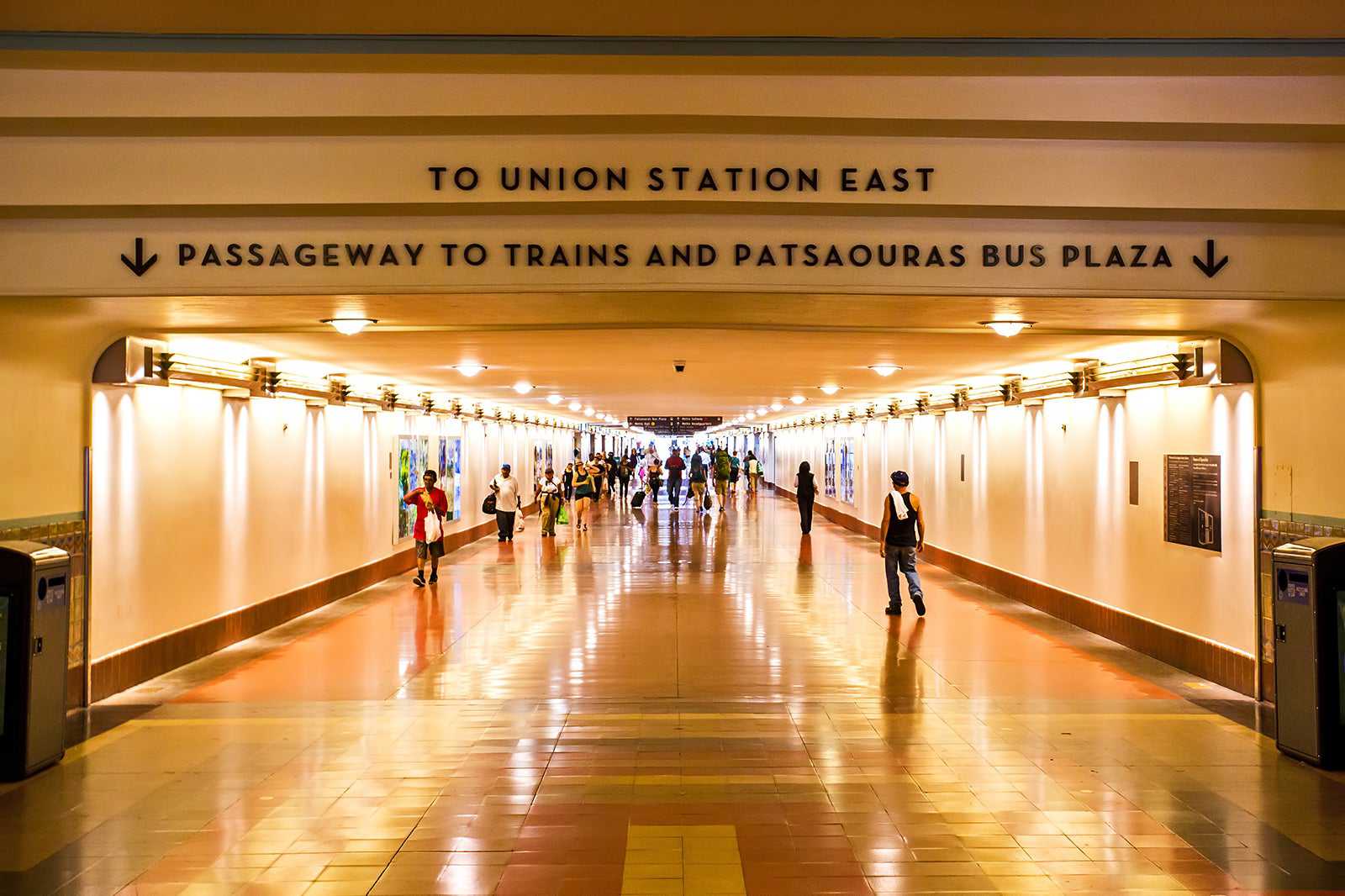
Good to know about Union Station
Union Station has a range of dining options and facilities for your convenience. Imperial Western Beer Company is a new brewpub with craft beer and cocktails. Traxx is a classic American cuisine restaurant that’s open for lunch, dinner and happy-hour beverages. Green Bowl 2 Go, Starbucks and Subway are great takeout options in the station.
Convenient amenities at Union Station include gift kiosks in the waiting room, bike racks and lockers, overnight and long-term parking options, and luggage storage. There are also plenty of things to do around the station, thanks to its central location in downtown LA. The Grand Park, Cathedral of Our Lady of the Angels, and the Japanese American National Museum are all within walking distance of the station.
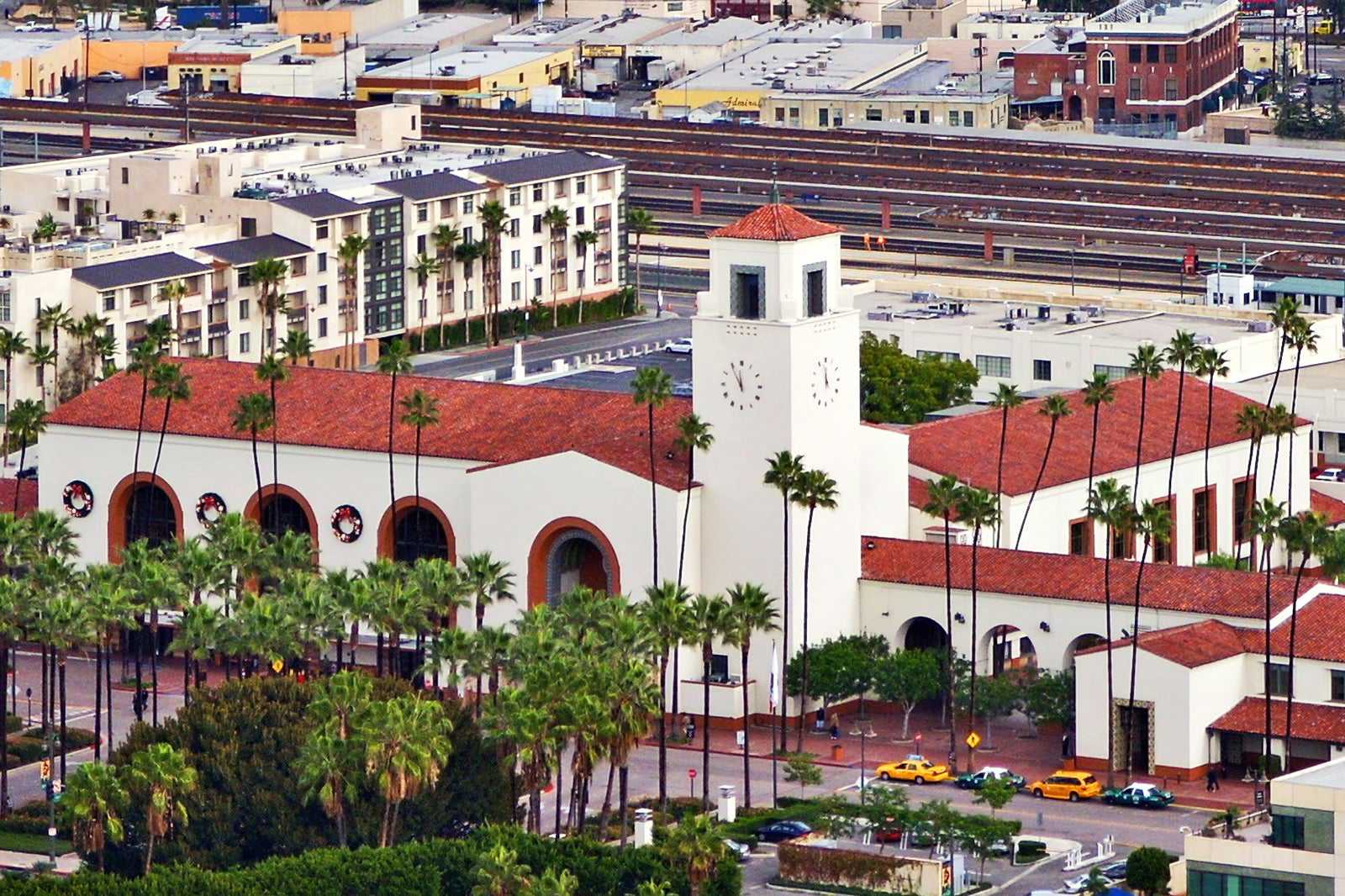
photo by Basil D Soufi (CC BY-SA 3.0) modified
Union Station in Los Angeles
Location: 800 N Alameda St, Los Angeles, CA 90012, USA
Open: Daily from 4 am to 1 am


